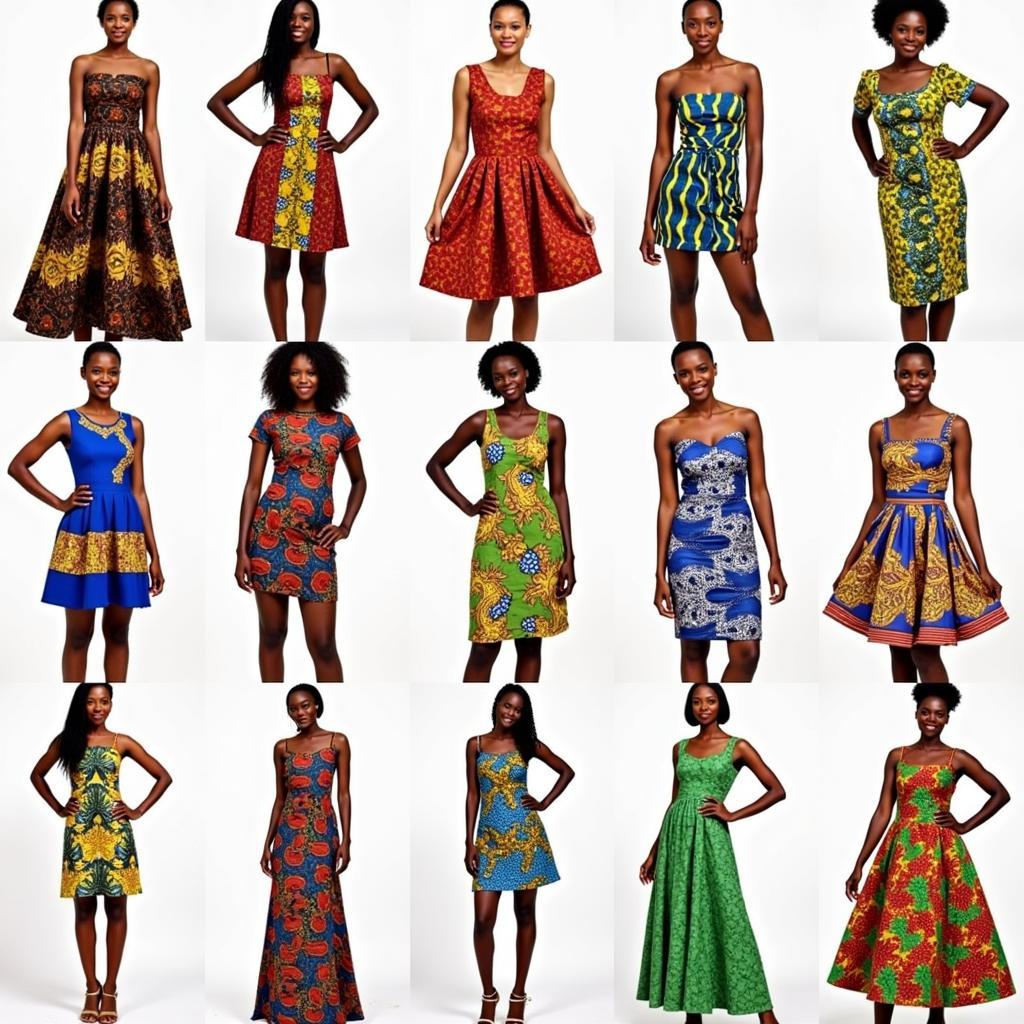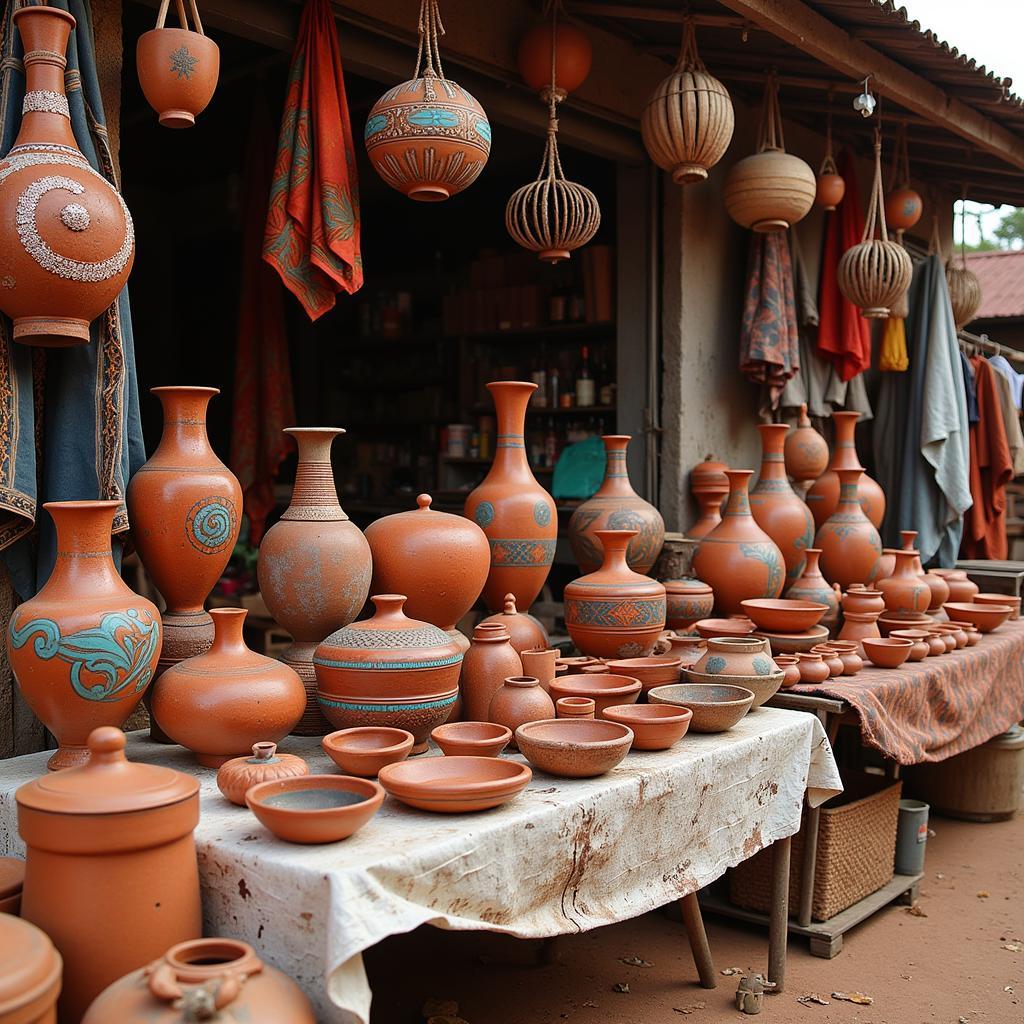African Kid Running From Gangs: Hollywood’s Portrayal and Reality
The image of an African kid running from gangs, often portrayed in Hollywood movies, evokes a sense of danger and vulnerability. But how accurately does this cinematic trope reflect the lived experiences of children in Africa? This article delves into the complexities of this representation, exploring its origins, impact, and the broader narrative surrounding childhood in Africa.
The “African Kid Running” Trope: A Critical Analysis
Hollywood has a history of simplifying complex African realities into easily digestible narratives. The “African kid running” trope, often associated with conflict, poverty, and gang violence, is a prime example. While these issues undoubtedly exist in some parts of Africa, the portrayal often lacks nuance and perpetuates harmful stereotypes. It reduces the diversity of African experiences to a singular image of struggle, ignoring the resilience, joy, and everyday life that also characterize the continent.
Deconstructing the Stereotype: Beyond the Single Story
The danger of this singular narrative is that it overshadows the multifaceted realities of African childhood. Not every child in Africa is running from gangs. Many children experience loving families, supportive communities, and access to education. Focusing solely on the negative aspects not only misrepresents the continent but also reinforces prejudice and limits understanding.
The portrayal of gangs also often lacks cultural context. While organized crime exists, it manifests differently across the continent, influenced by local factors and dynamics. Hollywood’s generic depiction often fails to capture this complexity, further contributing to a distorted image.
The Impact of Media Representation: Shaping Global Perceptions
The way Africa is portrayed in media, including the “African Kid Running From Gangs Hollywood Movie” trope, significantly impacts global perceptions. These images shape how audiences understand the continent, influencing their attitudes, beliefs, and even policy decisions. The constant bombardment of negative imagery can lead to prejudice, hindering efforts towards genuine cross-cultural understanding and cooperation.
The Power of Narrative: Reframing the Story
Challenging these stereotypical representations is crucial. It requires a conscious effort to diversify the narratives coming out of Africa, showcasing the full spectrum of human experience. This includes highlighting the positive stories of innovation, resilience, and cultural richness that often go untold.
Beyond the Headlines: Understanding the Complexities of African Childhood
It is important to move beyond the simplistic headlines and delve into the complexities of African childhood. This requires acknowledging the challenges while simultaneously celebrating the triumphs and recognizing the diversity within the continent. It necessitates a shift from a narrative of pity and helplessness to one of agency and potential.
From Victimhood to Empowerment: Focusing on Solutions
Rather than solely focusing on the “african kid running from gangs hollywood movie” narrative, it’s crucial to highlight the initiatives and individuals working to address the root causes of these issues. This includes supporting local organizations, promoting education, and empowering communities to create positive change.
Conclusion: Reimagining African Narratives
The “african kid running from gangs hollywood movie” trope, while sometimes reflecting a sliver of reality, ultimately fails to capture the full spectrum of African childhood. By challenging these limited portrayals and embracing more nuanced narratives, we can foster a deeper understanding of the continent and its people. Moving beyond the stereotypes is essential to promoting genuine cross-cultural connection and supporting positive change in Africa.
FAQ
- Are all African children involved in gangs? No, the vast majority of African children are not involved in gangs. This is a harmful stereotype perpetuated by media.
- Is Africa a dangerous place for children? Like anywhere in the world, some areas in Africa face challenges related to safety and security, but many regions are safe and thriving.
- How can I help support African children? You can support reputable organizations working on the ground in Africa, focusing on education, healthcare, and community development.
- What are some positive stories about African children? There are countless stories of resilience, innovation, and achievement among African children, often overlooked by mainstream media.
- How can I learn more about the diverse cultures of Africa? Explore resources like books, documentaries, and websites that showcase the rich cultural tapestry of the continent.
Common Situations and Questions:
People often wonder about the safety and well-being of children in Africa based on what they see in movies. It’s important to remember that these portrayals are often exaggerated and do not reflect the entire picture.
Further Exploration:
For more information about life in Africa, you can explore other articles on our website about education, culture, and development.
Call us at +255768904061, email us at [email protected], or visit us in Mbarali DC Mawindi, Kangaga, Tanzania. Our customer service team is available 24/7.



